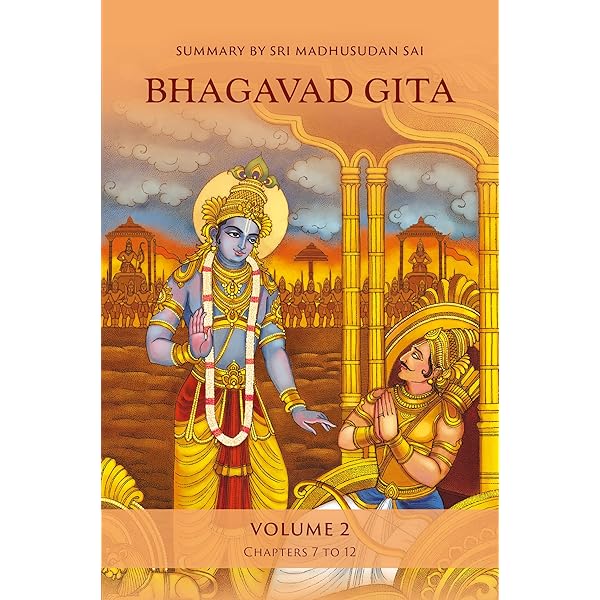Chapter XVI — The Bhagavad-Gita
byChapter XVI opens with a clear explanation of the traits that reflect a life aligned with higher purpose. Krishna describes divine qualities as natural to those walking a spiritual path. Fearlessness, inner purity, self-control, truthfulness, compassion, and devotion are not just ideals, but necessary behaviors for those who wish to break free from ego and suffering. These traits anchor a person in peace and are cultivated through constant reflection and a genuine desire to do good without seeking praise. Such a person avoids the chaos of the material world by choosing simplicity, restraint, and quiet confidence. Through patience and kindness, they uplift others while steadily growing in wisdom and self-awareness.
In contrast, Krishna outlines the disturbing traits of those governed by a darker nature. Pride, arrogance, uncontrolled anger, and delusion define the path of the undivine. These individuals disregard discipline and believe that the universe lacks moral structure, seeing life only through the lens of desire and selfish pursuit. Their actions are fueled by greed, and they harm others for temporary pleasure or power. These qualities lead not only to unhappiness in this life, but also to rebirth into lower states of existence. Krishna describes how such souls become trapped in endless cycles of suffering, never breaking free from ignorance unless a shift in awareness occurs.
Such stark contrasts serve to highlight the urgency of choosing the right path. Every action builds character, and every habit reinforces one’s nature. When a person becomes aware of these influences, they gain the power to change direction. Krishna urges the listener to recognize the seeds of both divine and undivine qualities within themselves. Cultivating one’s better nature is not simply a matter of belief but of choice and continuous effort. By choosing humility, discipline, and truth, one not only improves their own life but helps bring balance to the world around them. These virtues grow with practice, becoming a part of everyday thought and action.
This chapter also provides insight into human psychology and how unchecked desires can spiral into chaos. People driven by ambition without self-control often become blind to consequences. They mistake comfort for fulfillment and power for purpose. Krishna explains that when individuals act without a sense of higher values, they lose touch with their soul’s potential. Their minds become restless, and peace remains out of reach. This unrest is not punished by the universe, but rather unfolds as a natural result of disharmony. As water mirrors the sky only when still, a mind disturbed by ego cannot reflect truth.
Krishna’s message isn’t one of condemnation but of awareness. Everyone has the ability to move toward a divine life through conscious effort. Simple practices like kindness, charity, mindfulness, and detachment from outcomes slowly cleanse the mind of arrogance and impulsive habits. There is always an opportunity to pause, reflect, and realign one’s actions with purpose. Even if someone feels trapped in anger or selfishness, change begins with a single shift in thought. Just as a seed can grow into a tree when nurtured, so can even small acts of virtue transform a life.
By the end of the chapter, Krishna offers a final assurance that the path of righteousness is always open. He warns that indulgence in cruelty, deception, or greed leads to rebirth in darker realms, but not as punishment—rather as a mirror of one’s inner world. But those who act with clarity, serve without selfishness, and maintain integrity are lifted into freedom. Such souls move closer to divine understanding and experience true peace. Chapter XVI, therefore, becomes a roadmap for those who seek lasting happiness—not by escaping life, but by choosing to live it with wisdom and grace.

